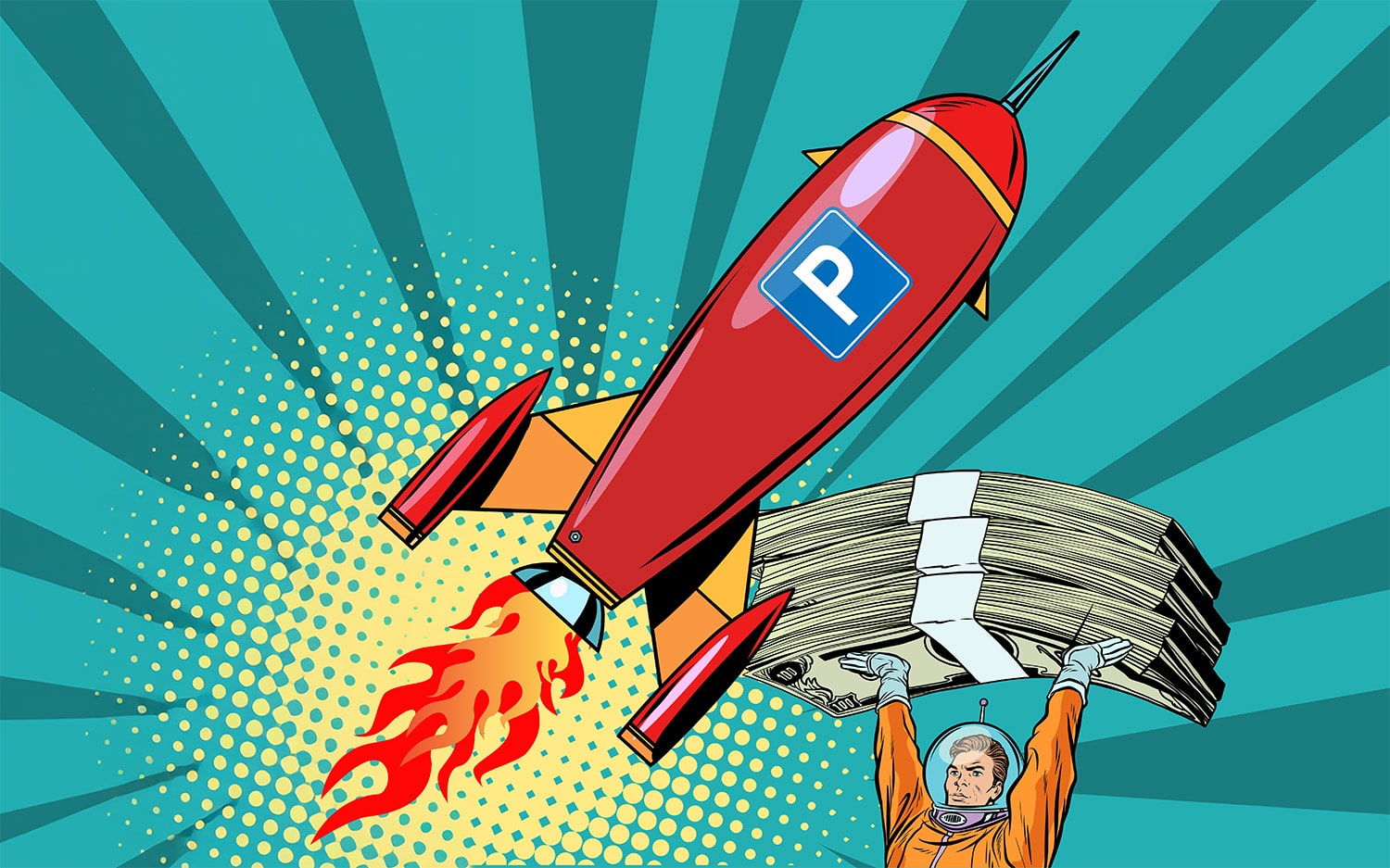
The news in early October that Metropolis had raised $1.7 billion to acquire SP+ sent shockwaves through the industry. On an operational level, the deal was exciting. America’s largest parking operator was going to be paired with a company that specializes in using artificial intelligence to manage parking. But what does the deal mean for the parking industry, and the venture investment picture as it pertains to parking?
According to Andy Bess, Managing Director at TrueNorth Capital Partners, an investment bank that is active in the parking industry, the implications of the deal revolve primarily around the operations end of the business.
“Given the recent SP announcement, I imagine we could see a new round of operator consolidation,” said Bess. “In fact, I’m already hearing about other investors who are new to the industry and interested in a ‘me too’ type of transaction.”
But Bess thinks that the size of the Metropolis/SP+ is an outlier.
“There has been a lot of money invested in parking technology, but it hasn’t always been done efficiently,” said Bess. “It’s difficult to efficiently deploy large sums of venture capital quickly. The VC funds that have come in and put a lot of money into single companies haven’t always seen the returns they were looking for.”
Prior to the announcement of the Metropolis/SP+ deal, though, much of the talk in the parking industry was focused on the scarcity of funding. According to Bess, in recent years venture capitalists have been pulling back when it comes to investing.
“It’s a struggle right now,” said Bess. “There’s a sinking tide that’s dropping all boats. It’s not unique to the parking industry. It’s just hard to find capital right now.”
Bess says that until recently, companies in the latter stages of obtaining funding—companies looking for third or fourth rounds of funding—were most impacted by the scarcity of capital. The earlier companies were in their development, the easier it was to find money.
“Now, though, we are seeing a reevaluation of risk,” said Bess. “There has been a change in exit value expectations. Investors are looking at what they can take out of the company at the end, and it’s harder to see what the exit is going to look like.”
According to Bess, part of the problem is there’s too much repetition. He says that in the mobility and parking technology sectors, which are the most active in seeking capital, there’s “an oversaturation of good ideas.”
“A lot of the best ideas are already being done,” said Bess. “While a new product may be better, is the step change enough to make owners and operators change from what they’re already using? Most owners and operators aren’t looking for perfect if they can get good enough. As an investor, I’m looking for unique niche opportunities.”
Taking Advantage of Opportunities
Bess says that there are “a lot of headwinds for early-stage companies.” But he stresses that there is still opportunity for raising capital for companies that fill the right niche, and which can demonstrate that they can help owners make money.
“I’m more interested in investing in companies that can help owners and operators generate new revenue streams,” said Bess. “There are a lot of companies out there offering to help owners save money, but I’m looking for technologies that can help find revenue sources that are adjacent and complementary to existing resources.”
“I’m also looking for companies whose underlying technology has the ability to scale,” continued Bess. “Companies that can process thousands of transactions a minute without overloading. Very few have built their platforms with that level of scalability in mind.”
Brian Wolff, President and CEO of Parker Technology, agrees with Bess about the importance of finding a valuable niche to fill when seeking funding. Parker has closed two rounds of venture capital in recent years, and he credits his company’s success to having identified “a niche where there’s value.”
“But when it comes to raising money, I think there’s more to success than just having a good idea or niche,” said Wolff. “You need to know parking and the parking industry. For years, established technology companies have tried to come in and take over parking, but they failed because they didn’t know the industry.
“But venture investment will continue to play an important role in the industry’s success and the success of parking companies,” continued Wolff. “To succeed, companies need a combination of capital, smarts, and parking savvy. Our industry is attracting outside capital because investors are realizing the value of parking.”
Automotus is another company that has successfully closed several rounds of funding. According to company president Roamy Valera, his company’s focus on growth and revenue generation has been attractive to investors. Valera says his company’s history has also played a role.
“Because there was a history of success and performance over the past 12 to 18 months, that simplified the process,” said Valera. “When we were seeking funding, we were operating from a position where the investors were comfortable and confident.”
Automotus’ strategy for its second round of funding was built on its first round.
“When we received our first round of funding, we followed that quickly with additional funding to respond to growing customer demand in our space,” said Valera. “That was a matter of delivering on the market opportunity, and ensuring we were well positioned for rapid growth.”
Bess says that Automotus is an example of a company that has managed the investment process the right way. He also thinks that the time is right for Automotus and other mobility companies.
“I’m paying close attention to companies who help manage the curb,” said Bess. “Free on-street parking is not the optimal use of city resources, and in many communities on-street parking is a largely untapped revenue source. Companies that can help expand parking monetization outside of city centers via loading and unloading fees and other uses will be increasingly important in the future.”
Another industry sector that Bess in interested in is EV charging. He says that a lot of money is being spent on EV charging, but it’s hard to find the right risk-return ratio.
“There’s going to be a ton of opportunity for EV in the parking industry,” said Bess. “A lot of people have come at EV with a lot of money, but I can’t always see where I’m going to get a return from many of these companies that are so highly valued today.
“For me, the real opportunity lies in companies that can integrate EV with PARCS and other parking technology platforms,” continued Bess. “It’s all about driving new revenue sources and integrating multiple systems, offering owners and operators a way to both create operating efficiencies and generate new revenues.”
Bob Andrews, founder of the EV provider Zevtron agrees. He says that from the beginning, their focus has been on creating and marketing a flexible EV platform that facilitates real-world use cases that can integrate with a site’s existing systems to eliminate pain points. For instance, integrating the EV platform with PARCS allows parking owners and operators to further maximize revenues while providing a better user experience.
“The key for any technology provider is to help its customers make money,” said Andrews. “We want to provide a platform that allows owners and operators to customize their EV services to meet their unique needs and the needs of their customers. And by integrating EV charging with their PARCS, we increase revenue and simplify the revenue collection process for them, while improving the parking experience.
“We’ve just begun the process of seeking out investors, and the feedback we are getting is that we are on the right track,” continued Andrews. “While it’s true that capital seems to be tighter than it was a year or two ago, the transition to electrified transportation presents a massive opportunity. And our approach of solving pain points and unlocking more value to operators and owners, rather than just plopping down electrified fueling stations in parking lots, seems to be resonating with investors. We are already speaking with customers and investors who share our view on the transition to EV, and we are encouraged by the reception we are getting.”
A Social Impact Approach
Social impact investing is an approach to investing that seeks to tackle social issues, generating positive social impact alongside financial returns. It involves directly or indirectly investing in organizations or projects that have a social mission or focus, with the goal of creating positive change in the world. Social impact investors actively seek out companies that are built on missions of creating positive change.
ping is a mobility company that describes itself as being “on a mission to save time, money, and lives.” Founded by longtime parking executive Barrie Arnold, ping markets an app that’s designed to reduce distracted driving by automatically reading time-sensitive messages and emails to the driver, while filtering out the noise.
“We’ve already completed one successful round of funding via venture capitalists and angel investors,” said Arnold. “We are preparing for a second round, and we are looking for investments that are intended to benefit society by reducing things like distracted driving. Distracted driving increased another 23% in 2022, costing $129 billion dollars a year in the U.S. alone, and we feel that our technology fills an important niche in the mobility industry that could ultimately save billions in healthcare and insurance costs, not to mention tens of thousands of lives, every year. Delivering daily convenience and productivity for drivers, ping’s technology also aligns very well with parking apps.”
These and other parking and mobility companies like them are attracting the attention of investors at a time when it’s challenging to find capital. They have all found niches that fulfill unmet needs, while also helping customers generate new revenue streams.
“If you want to get in front of me and other investors, bring something new,” said Bess. “And make sure it will help your customers make more money.” ◆
Bill Smith is a publicist and business writer specializing in the parking industry.
-
Bill Smithhttps://parking-mobility-magazine.org/author/bill-smith/December 1, 2021
-
Bill Smithhttps://parking-mobility-magazine.org/author/bill-smith/January 1, 2022
-
Bill Smithhttps://parking-mobility-magazine.org/author/bill-smith/March 3, 2022


Bridging the Generation Gap
Technology’s Transformative Role in Shaping the Parking Workforce

An Evolution of Parking
Adapting and thriving in a changing mobility landscape.

The Prudent Choice
Why Parking Operators Should Remain Technology Agnostic

Endless Possibilities
The Evolution of Moving from
One Location to Another











